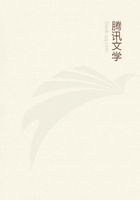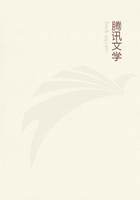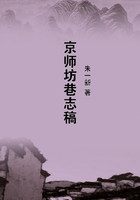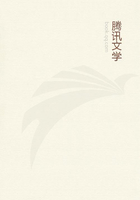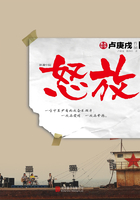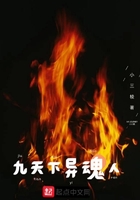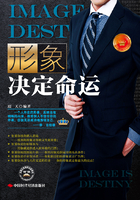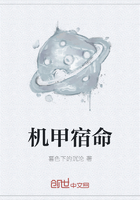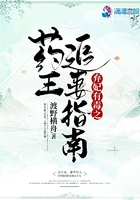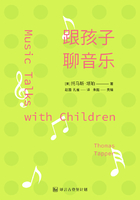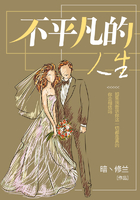The events and actions of this history are therefore such that personality and individual character do not enter to any large degree into its content and matter. In this respect the history of Philosophy contrasts with political history, in which the individual, according to the peculiarity of his disposition, talents, affections, the strength or weakness of his character, and in general, according to that through which he is this individual, is the subject of actions and events. In Philosophy, the less deserts and merits are accorded to the particular individual, the better is the history; and the more it deals with thought as free, with the universal character of man as man, the more this thought, which is devoid of special characteristic, is itself shown to be the producing subject.
The acts of thought appear at first to be a matter of history, and, therefore, things of the past and outside our real existence. But in reality we are what we are through history: or, more accurately, as in the history of Thought, what has passed away is only one side, so in the present, what we have as a permanent possession is essentially bound up with our place in history. The possession of self-conscious reason, which belongs to us of the present world, did not arise suddenly, nor did it grow only from the soil of the present. This possession must be regarded as previously present, as an inheritance, and as the result of labour-the labour of all past generations of men. Just as the arts of outward life, the accumulated skill and invention, the customs and arrangements of social and political life, are the result of the thought, care, and needs, of the want and the misery, of the ingenuity, the plans and achievements of those who preceded us in history, so, likewise, in science, and specially in Philosophy, do we owe what we are to the tradition which, as Herder has put it (1) like a holy chain, runs through all that was transient, and has therefore passed away. Thus has been preserved and transmitted to us what antiquity produced.
But this tradition is not only a stewardess who simply guards faithfully that which she has received, and thus delivers it unchanged to posterity, just as the course of nature in the infinite change and activity of its forms ever remains constant to its original laws and makes no step in advance. Such tradition is no motionless statue, but is alive, and swells like a mighty river, which increases in size the further it advances from its source. The content of this tradition is that which the intellectual world has brought forth, and the universal Mind does not remain stationary. But it is just the universal kind with which we have to do. It may certainly be the case with a single nation that its culture, art, science-its intellectual activities as a whole-are at a standstill. This appears, perhaps, to be the case with the Chinese, for example, who may have been as far advanced in every respect two thousand years ago as now. But the world-spirit does not sink into this rest of indifference; this follows from its very nature, for its activity, is its life. This activity presupposes a material already present, on which it acts, and which it does not merely augment by the addition of new matter, but completely fashions and transforms. Thus that which each generation has produced in science and in intellectual activity, is an heirloom to which all the past generations have added their savings, a temple in which all races of men thankfully and cheerfully deposit that which rendered aid to them through life, and which they had won from the depths of Nature and of Mind. To receive this inheritance is also to enter upon its use. It constitutes the soul of each successive generation, the intellectual substance of the time; its principles, prejudices, and possessions; and this legacy is degraded to a material which becomes metamorphosed by Mind.
In this manner that which is received is changed, and the material worked upon is both enriched and preserved at the same time.
This is the function of our own and of every age: to grasp the knowledge which is already existing, to make it our own, and in so doing to develop it still further and to raise it to a higher level. In thus appropriating it to ourselves we make it into something different from what it was before. On the presupposition of an already existing intellectual world which is transformed in our appropriation of it, depends the fact that Philosophy can only arise in connection with previous Philosophy, from which of necessity it has arisen. The course of history does not show us the Becoming of things foreign to us, but the Becoming of ourselves and of our own knowledge.
The ideas and questions which may be present to our mind regarding the character and ends of the history of Philosophy, depend on the nature of the relationship here given. In this lies the explanation of the fact that the study of the history of Philosophy is an introduction to Philosophy itself. The guiding principles for the formation of this history are given in this fact, the further discussion of which must thus be the main object of this introduction. We must also, however, keep in mind, as being of fundamental importance, the conception of the aim of Philosophy. And since, as already mentioned, the systematic exposition of this conception cannot here find a place, such discussion as we can now undertake, can only propose to deal with the subject provisionally and not to give a thorough and conclusive account of the nature of the Becoming of Philosophy.
This Becoming is not merely a passive movement, as we suppose movements such as those of the sun and moon to be. It is no mere movement in the unresisting medium of space and time. What we must represent to ourselves is the activity of free thought; we have to present the history of the world of thought as it has arisen and produced itself.

